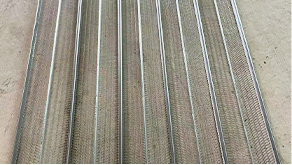Nov . 11, 2024 08:53 Back to list
resilient seat gate valve
The Resilient Seat Gate Valve A Comprehensive Overview
In the realm of fluid control systems, the resilient seat gate valve stands out as a crucial component designed for efficiency and reliability. This type of valve has gained immense popularity in various industries, including water treatment, municipal plumbing, and oil and gas, due to its unique construction and operational advantages.
Definition and Structure
A gate valve is primarily used to allow or restrict the flow of liquids or gases. The resilient seat gate valve is characterized by its rubber or elastomeric sealing surface, often made from materials like EPDM (ethylene propylene diene monomer) or NBR (nitrile rubber). This resilient sealing surface enhances the valve's ability to create a tight seal when closed, thereby minimizing leaks.
The structure of a resilient seat gate valve typically comprises two primary components the body and the gate. The body is usually manufactured from robust materials like cast iron, ductile iron, or stainless steel, ensuring durability and resistance to corrosion. The gate is a flat piece that moves up and down within the valve body to control fluid flow. When the gate is fully lowered, it forms a tight seal against the resilient seat, effectively blocking the fluid flow. Conversely, when lifted, it allows for unobstructed passage of the fluid.
Operational Advantages
One of the most significant advantages of resilient seat gate valves is their low flow resistance. Unlike other valve types that may partially obstruct flow even when fully open, a gate valve provides a full passageway. This characteristic is particularly vital in applications where maintaining consistent flow rates is essential.
Moreover, the use of resilient materials for the seat significantly improves the valve's sealing capability. These materials can accommodate slight irregularities in the valve seat and body, creating a better seal than traditional metal-to-metal seating arrangements. This leads to diminished leakage rates, ensuring that even under high-pressure conditions, the risk of fluid escaping is greatly reduced.
Applications
resilient seat gate valve

Resilient seat gate valves are widely utilized in a variety of fields. In water supply systems, they play a pivotal role in controlling the flow of potable water. Their ability to handle high pressure and flow rates makes them ideal for municipal waterworks, where reliability is crucial.
In industrial contexts, these valves are often employed in chemical processing, where the handling of various fluids requires valves that prevent leakage and contamination. The resilience of the valve seat materials also allows them to withstand aggressive chemicals, contributing to their long service life in such demanding environments.
Additionally, the oil and gas industry often utilizes resilient seat gate valves for fluid transportation and processing. They are integral in pipelines where preventing leakages is paramount to safety and environmental protection.
Installation and Maintenance
Installing resilient seat gate valves requires adherence to specific protocols to ensure optimal performance. It is essential to align the valve correctly with the pipeline and ensure that all connections are secure to prevent any potential stress on the valve body. Proper installation reduces the risk of operational failures and extends the lifespan of the valve.
Maintenance of resilient seat gate valves is relatively straightforward. Regular inspections are recommended to check for signs of wear or damage to the rubber seating surfaces. Although these valves generally require less maintenance than other valve types, it is crucial to address any issues promptly. If leaks are detected, the valve can be repaired or the seat replaced without the need for complete valve replacement, making repairs cost-effective.
Conclusion
The resilient seat gate valve is an indispensable tool in modern fluid control systems. Its robust design, coupled with the advantages of its resilient sealing properties, makes it suitable for various applications across different industries. With proper installation and regular maintenance, these valves provide a reliable solution for managing fluid flow, ensuring both efficiency and safety in operations. As industries continue to evolve, the demand for resilient seat gate valves is expected to grow, reflecting their critical role in fluid management and control systems globally.
Share
-
Reliable Wafer Type Butterfly Valves for Every IndustryNewsJul.25,2025
-
Reliable Flow Control Begins with the Right Ball Check ValveNewsJul.25,2025
-
Precision Flow Control Starts with Quality ValvesNewsJul.25,2025
-
Industrial Flow Control ReliabilityNewsJul.25,2025
-
Engineered for Efficiency Gate Valves That Power Industrial PerformanceNewsJul.25,2025
-
Empowering Infrastructure Through Quality ManufacturingNewsJul.25,2025